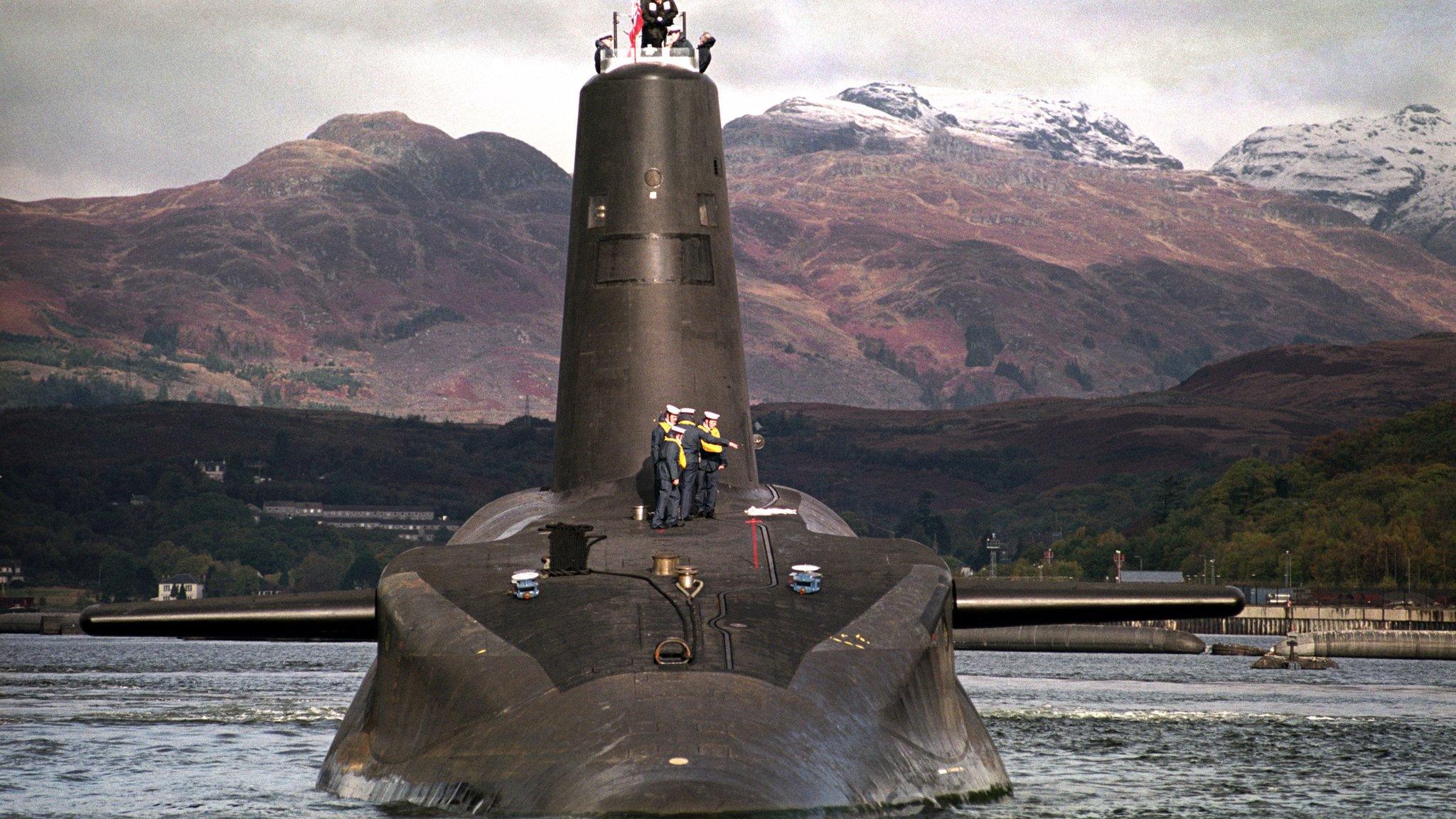Trident replacement: Theresa May calls for Commons vote
- Published
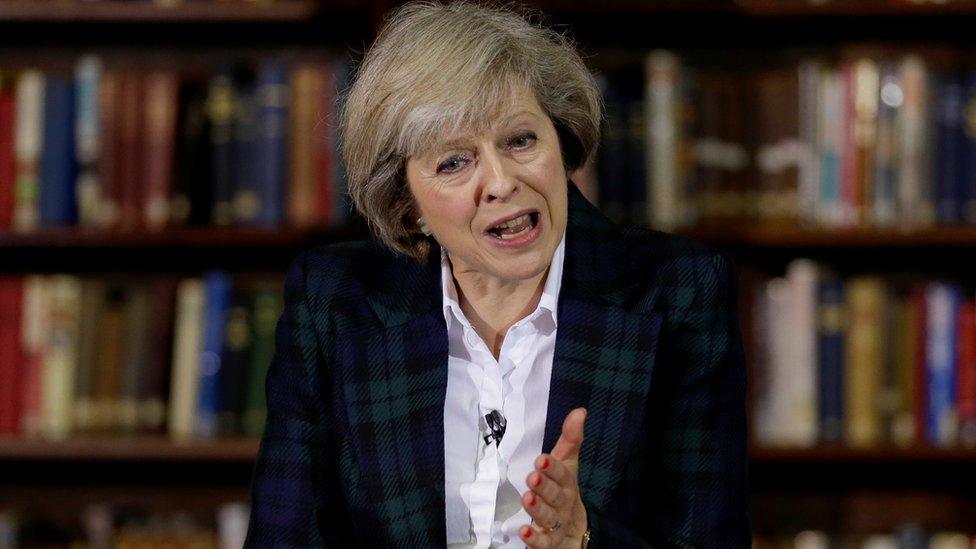
Theresa May said the UK faced threats from "conventional enemies"
There should be a vote in the House of Commons on replacing Trident before the summer recess, Theresa May has said.
The home secretary and Tory leadership candidate told the Daily Mail it would be "sheer madness" to give up the UK's nuclear deterrent, external because of the threat posed by countries including Russia.
Renewing Trident would show Britain was "committed" to working with Nato allies after voting for Brexit, she added.
Labour is split over Trident, with Jeremy Corbyn opposing its renewal.
Mrs May, seen as the front runner in the contest to replace David Cameron, said there was a "rapidly changing terrorist threat" from groups including so-called Islamic State and Boko Haram.
But she disputed the suggestion this meant the UK no longer needed a nuclear deterrent, saying the UK still faced threats from "conventional enemies".
Mrs May said this included Russia, which had showed "renewed beligerence" in its annexation of Crimea, and North Korea, which she said "continues to defy international law with its nuclear programme".

What is Trident for?
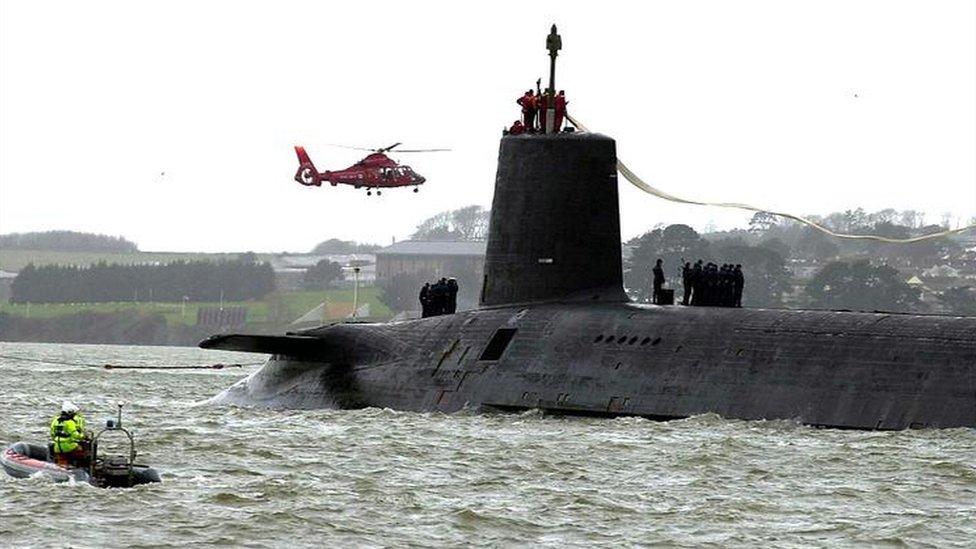
The Royal Navy's nuclear submarine - HMS Vanguard - is 150 metres long
Since 1969, according to government documents, external, a British submarine carrying nuclear weapons has always been on patrol, gliding silently beneath the waves, somewhere in the world's oceans.
The logic is to deter a nuclear attack on the UK because, even if the nation's conventional defence capabilities were destroyed, the silent submarine would still be able to launch a catastrophic retaliatory strike on the aggressor, a concept known as mutually assured destruction.
The submarines carry up to eight Trident missiles; each can be fitted with a number of warheads.
Read more about the history of the UK's nuclear weapons system

Pledging to make a "strong defence an important priority" if she is elected leader of the Conservatives, Mrs May wrote: "In the face of such strong evidence, it would be sheer madness to contemplate even for a moment giving up Britain's independent nuclear deterrent.
"And there is no room for compromise, and no room for cheese paring.
"We need a full fleet of four submarines, capable between them of providing what the military call 'Continuous At Sea Deterrence', or permanent, around-the-clock cover.
"Doing so will send an important message that, as Britain leaves the European Union, we remain committed to working alongside our Nato allies and playing our full role in the world."
Labour review
Parliament is to hold a vote later this year on whether to proceed with building successor submarines to the existing Vanguard fleet, which is due to become obsolete by the end of the next decade.
Mrs May said the vote should take place before the Commons summer break begins on 21 July, adding "we should get on with getting it built".
She said: "A lot of parliamentary business has, for obvious reasons, been put on hold until the leadership election is complete and a new prime minister is in post.
"But when it comes to the nuclear deterrent, the national interest is clear, the Conservatives are united, and we have waited long enough."
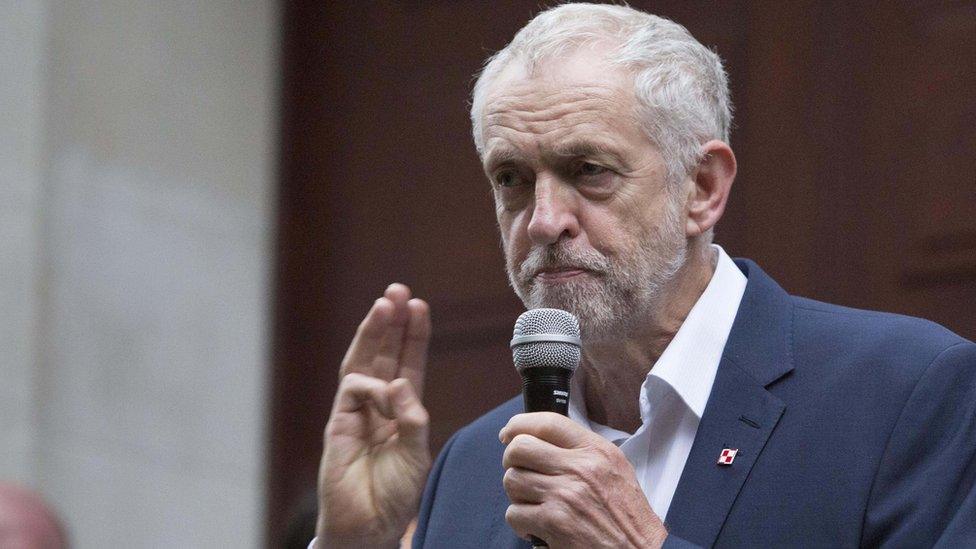
Jeremy Corbyn has previously said he would never use nuclear weapons
Labour has become split over the renewal of Trident following the election of leader Jeremy Corbyn, who is a life-long opponent of nuclear weapons.
Mr Corbyn is at odds with many of his MPs over the future of the UK nuclear weapons system - which the government has estimated will cost £31bn to renew - and has commissioned a review led by shadow defence secretary Emily Thornberry to look at its future, likely to report in the summer.
He has previously suggested the UK could keep its Trident submarine fleet but without carrying nuclear warheads.
The Conservative leadership contest was sparked by Mr Cameron's decision to step down as prime minster after the UK voted by 52% to 48% to leave the EU, in the June referendum.
The other candidates are energy minister Andrea Leadsom, Justice Secretary Michael Gove, Work and Pensions Secretary Stephen Crabb and former defence secretary Liam Fox.
Party members will choose from the two backed by most Tory MPs, with the winner due to be named on 9 September. MPs are due to start the first round of voting later.
- Published5 July 2016
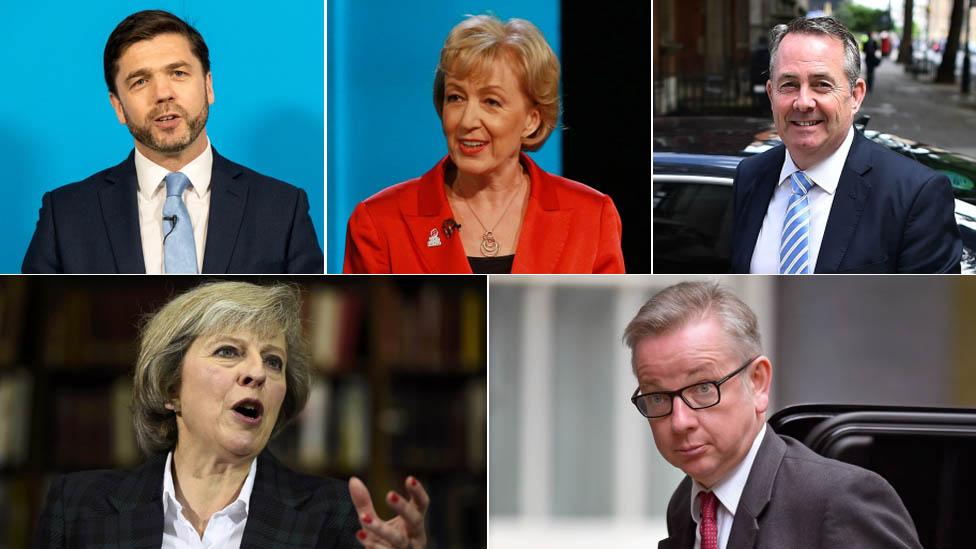
- Published8 July 2016
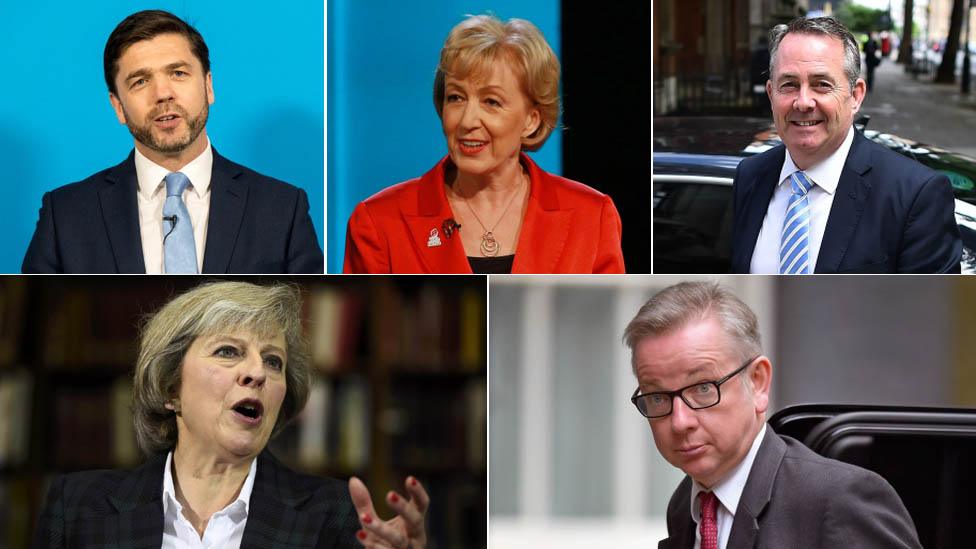
- Published4 July 2016
- Published8 July 2016
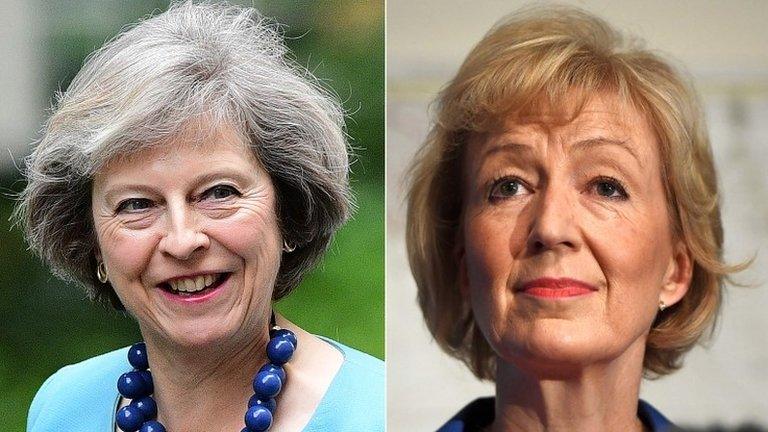
- Published13 February 2016
